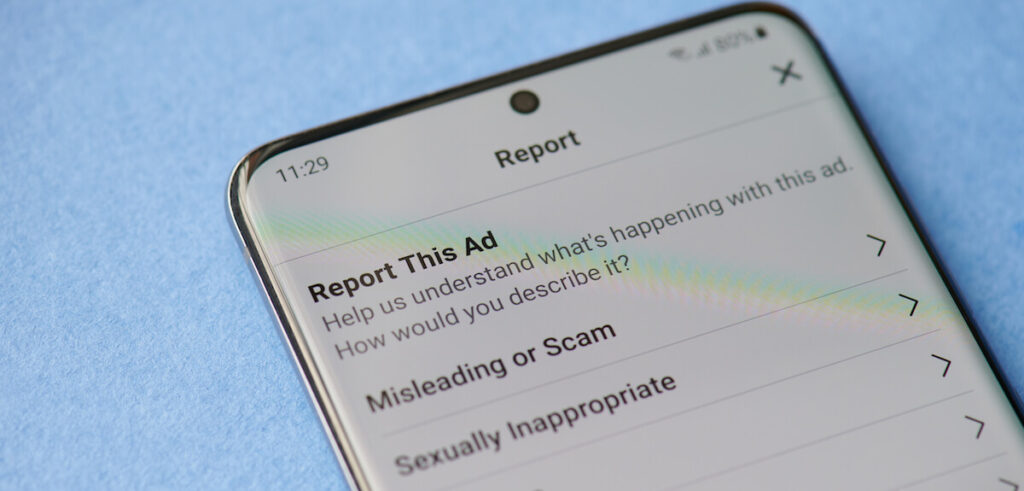What You Should and Shouldn’t Do on Facebook
Facebook is a popular and valuable resource for connection, serving millions of users. However, the constant and unfiltered exchange of information can create a minefield of potential risks to note and navigate. Many people feel more comfortable connecting online when they know more about online safety and the platform they are using.
Users of all ages are susceptible to the rewards and potential pitfalls of Facebook. However, older adults who may be less familiar with social media may find themselves in compromising positions online more frequently.
But there is no reason to be intimidated by Facebook or any online social media platform. Village Green Senior Living is sharing the basics so you feel comfortable and ready to connect with friends and family online.
Facebook for Seniors: Things to Avoid
Putting Your Privacy at Risk
Facebook is, first and foremost, a social networking service. This means that Facebook is programmed to connect you with people you likely know in the real world. While that is helpful for staying in touch with your loved ones, reconnecting with old circles, or making new friends, it also means much of the information you post or generate when using Facebook is available to the public (depending on your privacy settings) and to the Facebook corporation.
While there is nothing you can do to ensure total privacy of your Facebook history, you can take measures so it only reaches your intended audience.
Here are the steps to modify your Facebook privacy settings:
1) Sign in to your Facebook account.
2) Click the dropdown under your profile picture in the right-hand corner and select Settings & Privacy to be guided through your current privacy settings.
3) Make any updates you would like to your privacy settings, including who can see your posts, tag you in photos, send you friend requests, etc.
4) Check back every few months to be sure nothing has changed, and there are no new options or settings.
Avoid Spam and Scams
Malicious actors use every form of technology to steal information, including Facebook. Spam that steals your personal information is often spread through corrupted links, malicious software, or files, so you must be mindful of what you click and download.
Do not click links from sources, websites, or email addresses you do not recognize. If you run across something that looks suspicious on Facebook, report it.

Facebook also provides the following tips for reviewing your account and removing spam:
- Check your login history for suspicious logins
- Check your Activity Log and delete any unwanted actions
- Check your installed apps and games, and delete anything you don’t trust
- Delete any photos, posts, pages, groups, or events you didn’t create
Facebook scams generally entail people creating fake accounts or hacking into existing accounts to trick other users into giving them personal information or money. You can usually detect a scam if the person asks you to send money before you can receive something in return. Poor spelling and grammatical errors are often indicators of scam messages or posts, as well.
If you receive a message from a friend’s account that seems uncharacteristic or odd, don’t respond. Instead, contact them through a different medium to determine if they actually sent the message. In addition, reject any “friend requests” from people you don’t know.
Don’t Share Your Current Location
It’s fun to post about your current activities on Facebook. However, using geolocation tags in your posts also provides information regarding your whereabouts that can be used against you.
For example, posting photos while on vacation highlights that you’re not home, which can invite criminals to target your residence. Wait until you are back home to post pictures or statuses about an out-of-town trip, and don’t share your location manually.
Beware of Fake News
Fake news has become an increasingly troublesome problem over the past few years. Bad actors create stories that are likely to get lots of clicks and shares because they are shocking.
Facebook users sometimes share articles or other content from unverified and disreputable sources without checking whether the information is accurate. This behavior spreads misinformation that is detrimental to communities and society. Before clicking on or opening a piece of content shared by someone – even a friend or family member – check the source, and don’t believe everything you see or read.
Facebook for Seniors: Things to Do
Despite the risks fostered in online communities, they also possess valuable possibilities. Here are a few ways you can use Facebook in a safe way that enhances your social life:
Connect with Friends and Family
The best part of Facebook is staying in touch with friends and family, especially if they live in a different town. Through Facebook, you can see what they’re up to, look at photos, and leave comments and messages.
While nothing can replace in-person interactions, online communication helps abate loneliness by giving you daily touchpoints with the people who matter to you. It also keeps you abreast of birthdays, anniversaries, engagements, and other life events.
Discover Local Events
Companies, organizations, and individuals can create and share pages about their local events. You can browse the ones in your area through the Events page on Facebook and see which ones are open to the public.
Research Businesses
Facebook has become an integral part of business in every industry, which works to your advantage. Via Facebook, you can find business information, including a company’s contact information and operating hours. In addition, if you’re unfamiliar with a business, you can use Facebook to research its history, services and products, past accomplishments, and more.
Current and former customers also leave reviews or recommendations on Facebook with information you can use when choosing between businesses.
Find Local and National News
While you want to avoid the fake news epidemic, Facebook is a good resource for connecting to the news sources you trust and follow. Even local media companies, including newspapers and radio stations, have Facebook pages where they post breaking news, feature stories, and other content.
You can stay updated with local, state, national, and international news by “Liking” and “Following” reputable news sources.
Expand Your Circle with Senior Living
We invite you to consider joining our Village Green community if you’re interested in new connections and social opportunities, no matter your interest or interaction style. Contact us today to experience it for yourself!

